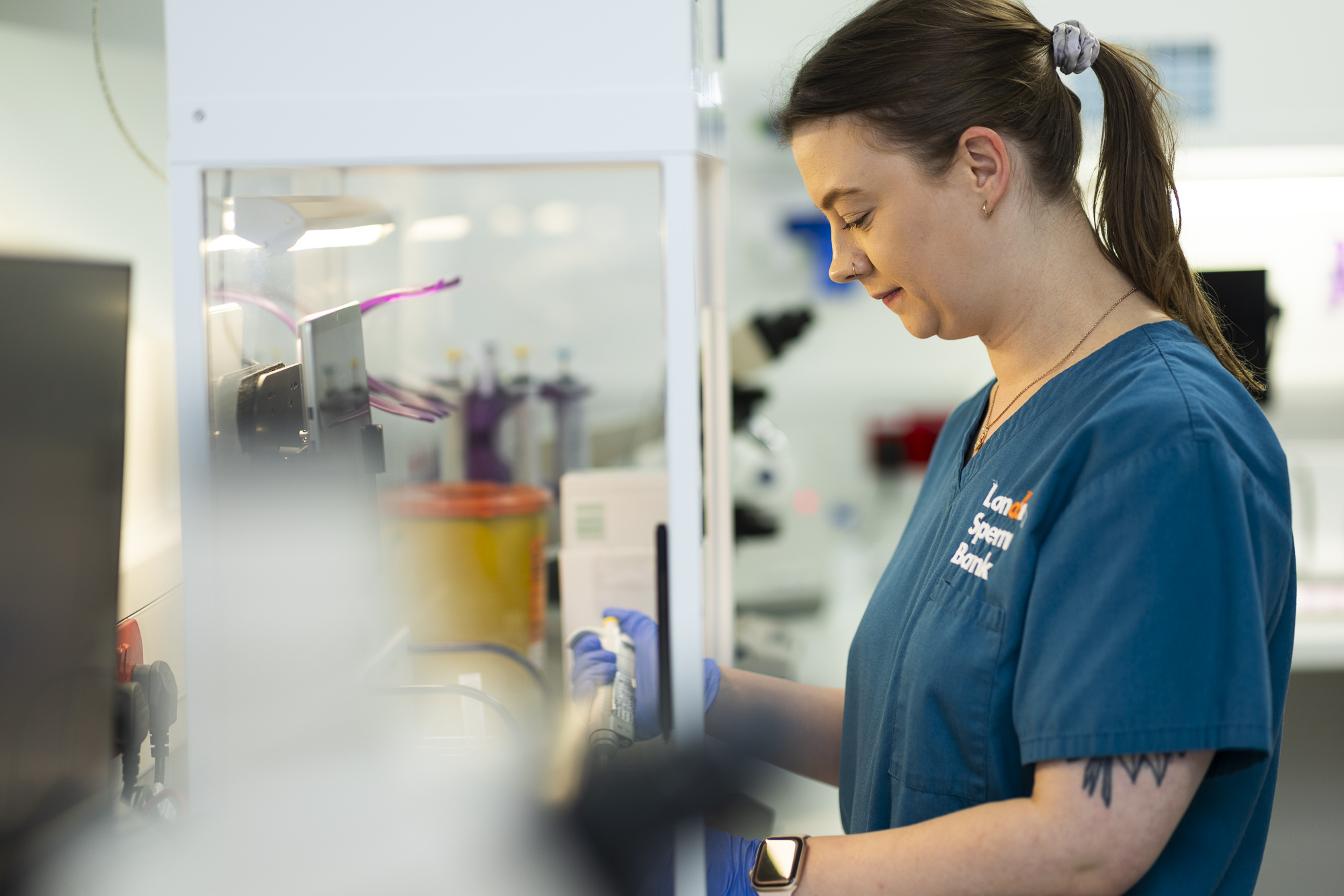 Blog
Blog
Male fertility myths and facts

Male infertility can result from many different reasons, from abnormal formation of sperm to failure of sperm – egg interactions. Medically, the definition of infertility is the inability to conceive a child after twelve months of active or regular unprotected sex.
There are many myths surrounding male fertility, which include, ‘If you have more sex, you will exhaust your sperm supply’. While a delay in the time periods between ejaculation may increase the concentration and volume of the next ejaculate, it is unlikely to have a long term effect on the production of sperm. And, a man may lose all sensations and sexual functions due to a spinal cord injury but still have what the World Health Organisation would consider a ‘normal’ sperm count.
Fertility myths and facts
Myth: Only people over 40 have fertility issues.
Fact: People can face fertility issues at any age. Varicoceles, damage to the sex organs, and chronic diseases all affect men’s fertility. This common fertility myth probably came from well-intentioned advice, as several studies do indicate that older men are more susceptible to infertility as increased age can result in a less powerful ejaculation, lower motility and poorer morphology of sperm cells. This does not mean, however, that young men are automatically excluded from having similar issues.
Myth: The best way to conceive is by having sex every day.
Fact: Regular sexual intercourse actually decreases a couple’s ability to conceive. According to Sharon Perkins (author of Infertility for Dummies), having too much sex depletes semen volume and sperm concentration, decreasing a man’s ability to reproduce. This fertility myth does seem sensible – more sex = more chance of conceiving, but there is a reason that we ask our donor’s to abstain from ejaculation for 3-5 days prior to their appointment.
Another fact: Want to increase your fertility? Try smart sex instead. Only have sex when your partner is ovulating (as determined by a physician) and have sex every other day, or even other two days, to maximize sperm concentration and semen volume. This maximizes your reproductive potential during this period (and it may lead to a more satisfying sex life).
Myth: Keeping testicles cold helps you conceive.
Fact: This is based in some truth – testicles hang outside the body because the body temperature is 37 degrees, while the ideal temperature of the testicles for sperm production is about 35 degrees. However, along with being painful and potentially dangerous, keeping the testicles cold does not increase fertility. Increased scrotal temperature does decrease sperm quality (so avoid the saunas and long hot baths), but this does not mean especially cold temperatures improve this rate. Taking care to keep cool before intercourse is the best method for increasing your reproductive rate.
Myth: More semen increases conception time.
Fact: Many believe bigger volumes of semen increases the likelihood of conceiving, but this is actually a myth. The fact is the quality of semen is just as important as volume, including the concentration, motility and morphology of the sperm cells. Combining both factors maximizes a couple’s ability to conceive.
Myth: Infertility doesn’t really exist. Just relax and you’ll get pregnant!
Fact: This myth is believed by most couples. It is not true, however. 10% of couples each year face fertility issues, and that number is rising. Getting medical help for fertility issues resolves nearly all cases, so it is important not to ignore it.
Myth: Infertility is a woman’s issue.
Fact: Half of all fertility issues are the result of male infertility or fertility problems. Becoming aware and understanding the information around male fertility is an important way to combat this.
‘Wear your trousers too tight and you will kill your sperm.
This one is true! As mentioned above, temperature affects sperms well being and it thrives in an environment that’s a few degrees cooler than our natural body temperature. Wearing tight trousers can raise the temperature of the testicles by not allowing cooler air to reach them, which can result in a decline of sperm count and motility. For example, men in tropical climates have a lower sperm count on average compared to their male counterparts in cooler climates.
More facts:
Male infertility can be caused by any of the following:
- High levels of free radicals
- Taking excessive alcohol
- Too much smoking
- Stress
- Childhood infections like mumps or measles
- Undescended testes
- Genetic abnormalities
- Obesity, causing testosterone/ oestrogen imbalance
- Impotence
- A medical history of prolonged illness like liver or kidney failure
- Some drugs and medication, such as antibiotics, may affect hormones and formation of sperm
- Trauma to the groin due to accidents or sports injury
- Varioceles – a congestion of veins on top of the testes (increases temperature of the testes, affecting sperm count)
- Scarring caused by a prolonged infection with chlamydia or gonorrhea
- Prostate cancer
- Anti-cancer chemotherapy
- Retrograde ejaculation: when sperm flow backwards into the bladder instead of being ejaculated from the penis during an orgasm, which is then discharged next time the bladder is emptied





